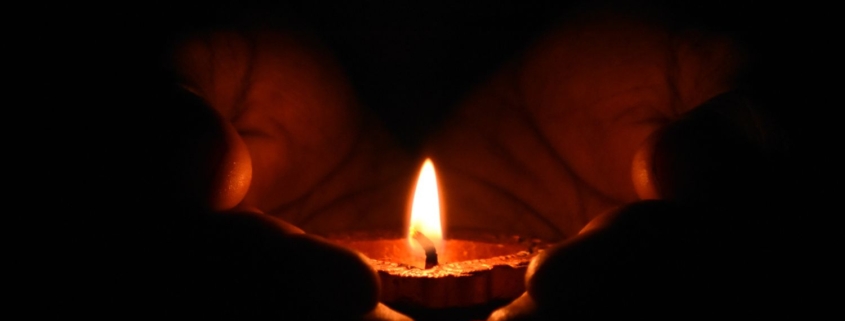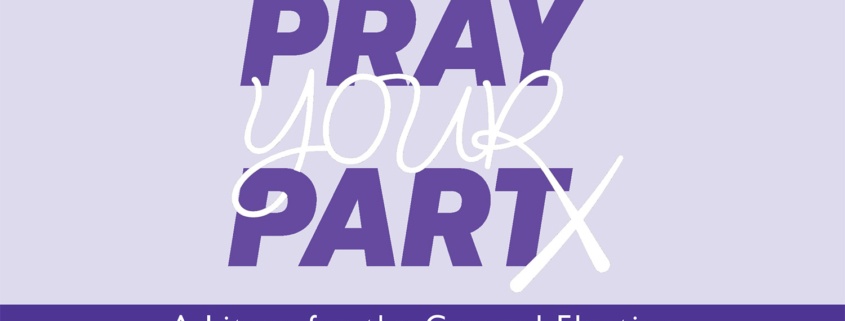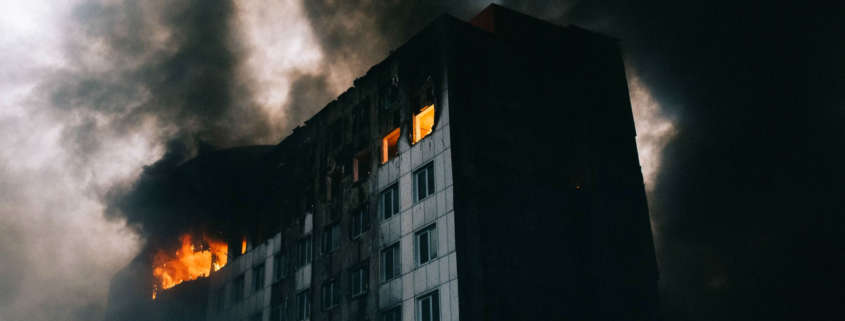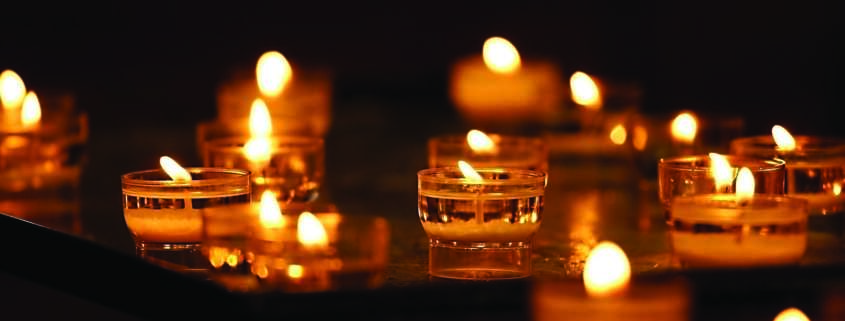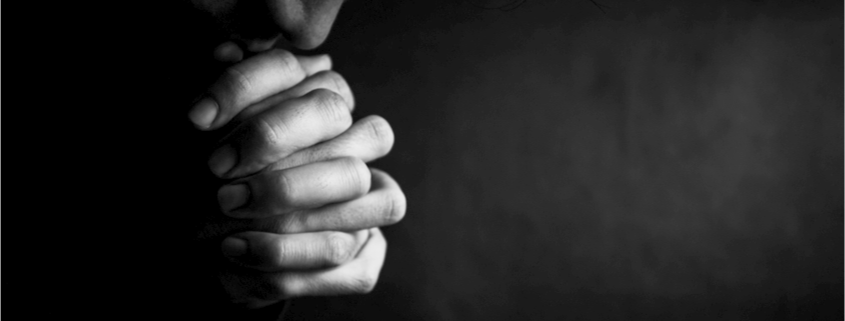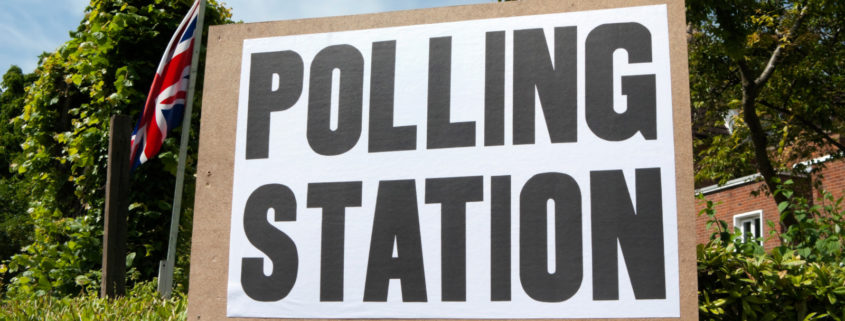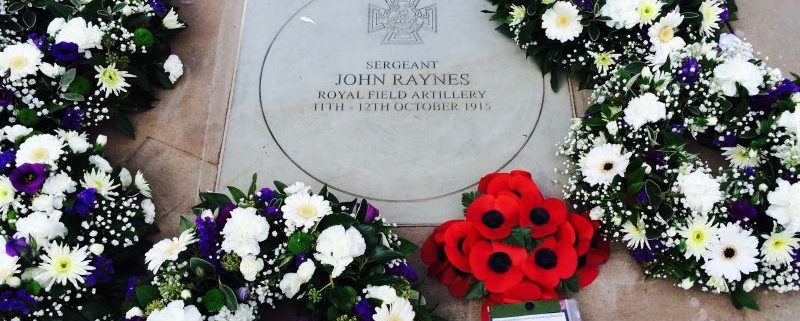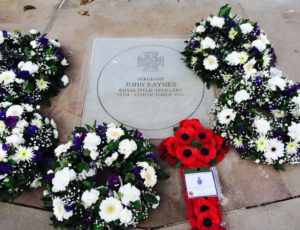Bishop Steven’s Diocesan Synod address reflects on how we strengthen our commitments to keep safeguarding at the heart of Church culture.
Posts
With the UK General Election on the horizon, Bishop Steven urged Diocesan Synod to pray for the nation.
Bishop Steven’s address to Diocesan Synod in March 2022, focusing on the atrocities in Ukraine and our call to be a more Christ-like Church.
Prayer for the Nation
A message from Bishop Steven in light of the Covid-19 death toll
On 26 January 2021, the UK’s Covid-19 death toll sadly reached 100,000 people. In an interview with BBC Radio Oxford, Bishop Steven shared his sympathies and encouraged listeners to join in with Prayer for the Nation, a daily prayer initiative from the Archbishops of Canterbury and York.
The Bishops of Buckingham and Reading also shared their thoughts and prayers.
A Presidential Address to the Oxford Diocesan Synod on Saturday 16 November. Read more
“God is our refuge and strength
A very present help in trouble.
Therefore we should not fear, though the earth should change
Though the mountains shake in the heart of the sea”
Psalm 46 has a special resonance today… The United Kingdom has voted to leave the European Union. This will be good news for some people but a genuine disappointment to others. The coming years will be marked by uncertainty and change. What does it mean and how should we respond?
A clear outcome
The outcome of the Referendum is clear. 52% of the electorate has voted to leave, 48% to remain. Every English region outside London had a majority to leave.
The vote in the city of Sheffield was close but still 51% in favour. The vote across the rest of the Diocese of Sheffield was even clearer (Doncaster 69% leave; Rotherham 67%; Barnsley 68%; East Riding 60%).
It is a more mixed picture in the Diocese of Oxford (where I become the bishop in a few weeks time). Some local authority areas have clearly voted to remain, others to leave but the balance in the region is still for leaving.
How should we interpret the result?
I watched the television coverage up until 1.30 am and again from 5.30. The politicians were interpreting the outcome in different ways: as a protest against particular parties or politicians, as a comment on the state of the NHS or immigration.
I’m cautious about all of these interpretations. I may be wrong but I believe that such a large number of people voted Leave for two reasons. First they genuinely want Britain to leave the European Union and to assert the right to self determination. 52% of the population in effect set the right to self governance above short and medium term economic prosperity.
Second 52% of the population voted for fundamental change in our country going forward even if that change brings some instability. Those left behind by current economic policies and politics clearly believe they have most to gain from new beginnings. That should tell us something very important.
The ongoing debate
Three vital questions came into focus during the long campaign. The result did not resolve them. We need more reflection and public debate on each.
The first is global migration. We heard again and again that “immigration” was an issue. But for the most part, the campaign was framed in the language the 1970’s and 1980’s. The issue for 2016 is not simply immigration but global migration. We are living through and will live through the greatest migration of people in human history. This movement of peoples is likely to increase through the effects of climate change, population growth, global inequality and armed conflict. We need a comprehensive, deep conversation about how Britain and the world will respond.
The second is identity. What does it mean to be British in 2016? We need leaders of vision able to articulate an inspiring vision for Britain and its future. That positive vision did not emerge in the campaign from either side.
The third is a new kind of politics. The murder of Jo Cox MP was an immense tragedy. The response of politicians on all sides helped us see again how many good, honest people represent us in Parliament. We need a style of public discourse which is more honest, more humble, more gentle and more kind. This will take more than self-discipline on the part of those in public life. We need some new symbolism. Over the next ten years, the House of Parliament are to be refurbished. Will we have the courage, I wonder, to reshape the chamber of the House of Commons to be less adversarial, less binary, more collaborative, seeking wisdom from every part of the community?
How should the Church respond?
The Archbishops of Canterbury and York have issued a statement this morning calling for humility and courage. They say “Unity, hope and gentleness will enable us to overcome the period of transition that will now happen and emerge confident and successful”.
The Church will respond with prayer for our government and Parliament and for all sections of our society. We will respond by entering into hopeful dialogue with people on all sides of the debate with courtesy and kindness. We will respond by cherishing the poor and the vulnerable and renewing our efforts to build a safe, just and peaceful world. We will continue to welcome the stranger and show mercy to the needy here and around the world. We will continue to build bridges and bonds of friendship across Europe and across the whole world.
In the words of Psalm 46, we will not be afraid though our world may be shaken. We will take time today to pray, to think, to love and to speak gently in God’s name.
+Steven
“Do you ever look at someone and wonder what’s going on inside their head?”
Last summer Ann, my wife, took me to the cinema to see Inside Out, the new animated film from Pixar. You might have seen it. If not it’s just out on DVD.
Inside Out is a brilliant, positive compassionate exploration of what it means to be human. The film takes us on a journey inside the mind of Riley, an eleven year old girl who moves with her family to a new city. Inside Riley’s mind are five different emotions each played by a different character: Joy, Sadness, Fear, Anger and Disgust (essential for responding to broccoli).
 These five emotions are in constant dialogue. Inside Out describes the wonderful complexity of what it means to be human: the vast caverns of memory and the “islands” which shape our personalities and make each of us unique: our family, our hobbies, our friendships, our sense of humour. The film’s story takes us on a journey (on the “train of thought”) to explore the memory banks, the deep subconscious, the dream factory which puts on nightly productions and the dark pit of oblivion.
These five emotions are in constant dialogue. Inside Out describes the wonderful complexity of what it means to be human: the vast caverns of memory and the “islands” which shape our personalities and make each of us unique: our family, our hobbies, our friendships, our sense of humour. The film’s story takes us on a journey (on the “train of thought”) to explore the memory banks, the deep subconscious, the dream factory which puts on nightly productions and the dark pit of oblivion.
We share Riley’s outer journey as she moves to a new city and a new school, copes with the stress on her parents and copes with the first real challenges of her life. As these things happen we see the interplay between Joy and Sadness, Anger and Fear and, of course, Disgust (broccoli pizza this time). The same five emotions are at the control panel inside Riley’s mum and dad and inside everyone else in the film. All of us have a rich, deep, inner world. Inside Out imagines that world in colour, brings it to life and makes us wonder.
So far so good. Inside Out will help a generation of children (and adults) think about what’s happening inside them, about what forms our character and about the role sadness and joy (and broccoli) play in a normal, healthy life. But for all of the film’s brilliance, there is something missing.
 Well, two things actually. The first is a sense of who really is there at Riley’s core. A human person is even more than a pile of different emotions taking the helm by turn. Each of us is a unique individual, made up of body, mind, emotions, will. The Bible talks about each of us having a soul, that precious inner part of each person, which brings life to every other part and animates them. When we encounter someone else we are meeting their whole self – all that makes them special. According to Genesis, when God made man and woman, they were incomplete until God breathed into them and made them live. This soul or spirit or breath of life is at the heart of all we are.
Well, two things actually. The first is a sense of who really is there at Riley’s core. A human person is even more than a pile of different emotions taking the helm by turn. Each of us is a unique individual, made up of body, mind, emotions, will. The Bible talks about each of us having a soul, that precious inner part of each person, which brings life to every other part and animates them. When we encounter someone else we are meeting their whole self – all that makes them special. According to Genesis, when God made man and woman, they were incomplete until God breathed into them and made them live. This soul or spirit or breath of life is at the heart of all we are.
The second missing piece is this. God’s breath in us, this soul and spark of life at the centre of who we are, longs again to be connected to the God who created us and all the world. Our lives have a spiritual dimension. Something within us yearns to connect with the love and beauty and purpose which is the heartbeat of the universe, something bigger and greater than ourselves. Until we do, we are incomplete. There is a wonderful Christian prayer which starts like this:
“O God, you have made us for yourself and our hearts are restless until they rest in you”.
In the words of Psalm 42:
“As the deer longs for flowing streams, so my soul longs for you, O God,
My soul thirsts for the living God. When shall I behold the face of God?”
It’s hard to see where God fits into Riley’s world. Where is the wonder of learning to pray and to worship, to give thanks for the beauty in the world, an awareness of truth, the sense of forgiving others and being forgiven? All these things are missing.
I enjoyed and appreciated Inside Out. It’s funny and hopeful and helps us see some of the wonder of what it means to be human. But the picture isn’t finished. There is more yet to be discovered than five emotions squabbling for control. Within each of us is a soul, the breath of God’s life, a unique human person. That soul is made to know God and to enjoy God for ever. We need to listen to that yearning deep within and reach out to our creator.
Britain woke up this morning to the news that the Lord’s Prayer has been banned from cinemas.
The Church of England has produced a sixty second commercial. The only words are the words of the Lord’s Prayer, said by children, the bereaved, people at work and so on. It’s a beautiful film, Certificate U. The ad is to promote a new website, Just Pray.uk. The plan was (and is) to show the film before Christmas at screenings of the new Star Wars film to help everyone think about prayer and to pray. What could be more simple?
The distributors have declared the Lord’s Prayer unsuitable for screening. They believe it carries the risk of upsetting or offending audiences.
Cue indignation from the press, fury from the Archbishop (according to the Mail anyway) debates about free speech, a possible challenge in the courts and a storm on social media.
But wait just a moment. Suppose the cinema chains got this one right?
I disagree with their decision and I disagree with the reasons they have given. I hope it’s reversed. I don’t believe the film will offend or upset audiences, in the way they mean, and I don’t believe it creates a new precedent.
But from the point of view of global corporations and consumer culture, from the perspective of the gods and spirits of the age, there are very good reasons indeed to ban the Lord’s Prayer from cinemas and from culture and from public life.
This is a prayer said by billions of people every day in every language on the planet. In every single moment in time, someone is praying these words. They are the first words of prayer we learn as children and the last words we say at the moment of death.
The Lord’s Prayer is powerful for a reason. These words shape lives and families and communities and whole societies.
There are real reasons why the Lord’s Prayer has been banned by the demigods of consumer culture, in the boardrooms of the cinema chains. Here are seven, one for every line.
First, this prayer gives to those who pray it an identity and a place in the world and a countercultural community. “Our Father in heaven, hallowed be your name”. It opposes the myth that we are random specks of matter floating through space and time. It opposes the myth that our lives do not matter. It opposes the myth of fragmented humanity.
We are created and loved and called into friendship with God who is our father and into community with our fellow human beings who are therefore our sisters and brothers. Only someone who has found this new identity can stand against the advertising culture which night and day seduces us to define who we are by what we spend.
Second this prayer gives us the courage to live in an imperfect world. “Your kingdom come. Your will be done on earth as it is in heaven”.
The world is not as it was meant to be. It is distorted from its true purpose. But God is at work to redeem and transform this world, to establish his kingdom. The Lord’s Prayer invites us not to retreat from the world in fear and pain, to anaesthetise or indulge ourselves. The Lord’s Prayer invites us to join the struggle to see justice and peace prevail.
Third, and most powerfully, the Lord’s Prayer teaches us to live with just enough. This is the most dangerous reason why it cannot be shown with the adverts at the cinema. It teaches us not to want more. It teaches contentment, the most subversive virtue of them all.
“Give us this day our daily bread”. This is not a prayer for more. This is a prayer only for what we need. Every other advert in the cinema is there to encourage us to spend money in pursuit of happiness. This one restrains our greed.
Fourth, the Lord’s Prayer teaches me to live with my imperfections and the imperfections of others. There is a way to deal with the rubbish in our lives. “Forgive us our sins”.
Consumer culture holds before us the image of perfection. We cannot be happy until we look like this person, live like that one. Each image is a lie.
The Lord’s Prayer acknowledges human imperfection and sin, daily. The Lord’s Prayer offers a pathway to forgiveness, daily. The way of forgiveness cannot be bought. It is a gift. Grace. Grace subverts the whole culture of advertising.
Fifth the Lord’s Prayer offers a way of reconciliation. “Forgive us our sins as we forgive those who sin against us”. We are not meant to feud or live in hostility or rivalry. We are meant to forgive and be forgiven, to be reconciled to each other. That reconciliation happens without expensive presents, without going into debt, without credit. People are not made happy by more things, another consumer lie. The greatest happiness comes from relationships. The key to great relationships is reconciliation and forgiveness.
Sixth, the Lord’s Prayer builds resilience in the human spirit. When you say this prayer each day you are prepared for the bad days. “Lead us not into temptation but deliver us from evil.”
When we say this prayer we remind ourselves that we are not living in a Disney fairy tale, a saccharine creation of film makers where every story has a happy ending.
We are living in a real world of cancer and violence and difficulty, where we are tested, where bad things happen for no clear reason. We live in that world confident in God’s love and goodness and help even in the midst of the most challenging moments of our lives. Faith is for the deep valleys as much as the green pastures. We may not have the answers but we know that God dwells with us and in us.
And seventh the Lord’s Prayer tells us how the story ends, how this life is to be lived and lived well. “For the kingdom, the power and the glory are yours, now and for ever. Amen”.
The prayer returns as it begins to the praise and glory of the living God. Our hearts return to their origin and source, the one who created us. Life is to be lived to God’s praise and glory, not to satisfy our own small desires. We are beings with a higher calling and a greater purpose.
There are only 63 words in the Lord’s Prayer. It takes less than a minute to say them.
Yet these words shape our identity, give purpose to our lives, check our greed, remind us of our imperfections, offer a way of reconciliation, build resilience in our spirits and call us to live to the glory of our creator.
No wonder they have been banned in the boardrooms of consumer culture.
+Steven
Note:
This post is based on a sermon given in Peterhouse, Cambridge on Sunday 22 November.
To view the Lord’s Prayer film go to: https://youtu.be/vlUXh4mx4gI
To view the Just Prayer website go to: justpray.uk?
For the Pilgrim Course on the Lord’s Prayer see: http://www.pilgrimcourse.org/
Just over a hundred years ago, Sergeant John Raynes, from Heeley in Sheffield, was serving on the Western Front. On 11th October, 1915, his battery was bombarded by armour piercing and gas shells. Sergeant Raynes ran out from his own battery not once but three times – a distance of 40 yards – to assist and then bring back a wounded colleague, Sergeant Ayres.
The following day, John saw action again. The house he was in was knocked down by a heavy shell. Eight men were trapped inside. The first man rescued was Sergeant John Raynes. He was wounded in the head and leg but insisted on remaining under heavy shell fire to assist in the rescue of the other men. He then reported for duty with his Battery which was again being heavily shelled.
For his courage on those two days Sergeant Major Raynes (as he became) received Britain’s highest military honour, the Victoria Cross.
Last Monday, 12th October, 2015, exactly one hundred years after these actions, John Raynes was honoured in his home city of Sheffield. Civic leaders gathered with officers from his former regiment, members of the Royal British Legion, children from local schools and the general public. As Bishop of Sheffield, I dedicated a special memorial paving stone to his memory in Barker’s Pool. A piper played a lament. We kept silence. A bugler sounded the Last Post and Reveille. We remembered.
There will be similar ceremonies all over the country over the next few years. The paving stone for John Raynes was one of over four hundred to be dedicated to all those who received the Victoria Cross in the Great War in each person’s place of birth all over the United Kingdom. There will be two further ceremonies in Sheffield in 2016.
For me and for many present, the ceremony was very moving. It was a good to reflect and remember the sacrifice and bravery of so many at the beginning of this season of remembering when we will wear poppies and look back. It was good to pray for the safety of British forces stationed overseas, many from this Diocese. It was good to remember the courage of a remarkable man and many like him. It was good to pray for the peace of the world and for all caught up in the conflicts of nations.
This is the prayer I wrote for the dedication of the paving stone to Sergeant Major John Crawshaw Raynes, VC:
You are our light in the darkness,Our strength when shadows fallWe dedicate this stone todayIn memory of a brave son of this city,John Crawshaw Raynes.May it serve always as a reminder of his courageOf the sacrifice of the men of this cityAnd of the dangers faced daily byOur armed forces.Grant to our world we pray,Peace and freedom and justiceAnd grant to each of usThe courage to defend our fellow men and womenIn your holy name we prayAmen.
Next week a team of 19 Bishops from across the north of England will spend four days in the Diocese of Sheffield in the Crossroads mission. The team of Bishops will be led by the Archbishop of York. Many of the bishops are bringing small teams with them to help in the various events.
Over 200 special events are taking place across the Diocese over the four days (not including all the Sunday services at which the bishops will speaking and leading). More than 100 parishes are involved in some direct way with the mission. We are being held in prayer across the whole Diocese and across the world. The Diocese of Sheffield is named tomorrow (2nd September) in the Anglican Communion’s prayer cycle.
The aim of the mission is to share the Christian faith with love and imagination in many different places. Jesus compared sharing the good news of God’s love with sowing seed. That’s exactly what we will be doing.
Everyone across the Diocese is warmly invited to the Cathedral for the commissioning and launch service on Thursday 10th September at 1.30 pm.
Everyone is also welcome to the final event in Minster Square in Rotherham at 4.00pm on Sunday 13th September.
There are also many other events happening near to where you live if you would like to join in.
We’ve planned a way for people who come to the events to find out more about faith by signing up for a special text messaging service. Details will be available at all the Crossroads events. There is a special twitter account for the mission @crossroads_info.
Many parishes in the Diocese are planning a small group or course this autumn to help people discover more about the Christian faith.
If you are already part of the Church please pray for these four days of mission, that God will bless this time in special ways. If you are not part of the Church then please come and explore faith by coming to the Crossroads events and joining a small group to explore faith together.
Everyone should take the opportunity, once in their life, to think seriously about the Christian faith. There is a course close to where you live.
Bishop Peter and I will be out and about at various mission events during the four days. We look forward to seeing you
+Steven
A prayer for the mission
Loving God, ?This world you love ?stands at the crossroads.
Help us help others ?to discover your Way ?to know your Truth ?and to share your Life ?in your dear Son, Jesus Christ.
Inspire us by your Spirit ?to sow the good seed of the gospel ?throughout this Diocese ?with imagination and compassion,
that many will come to know you ?and many will be strengthened in their faith,
Through Jesus Christ our Lord?
Amen.
Episode
Discovering Prayer helps thousands of people to go deeper with God through different forms of audio prayers and meditations. Bishop Steven chats to Michelle Eyre, Chief Prayer Officer and Founder in this latest edition of My (extraordinary) family. Read Michelle’s How to Pray article and God in the Life Of Michelle in Pathways magazine.

